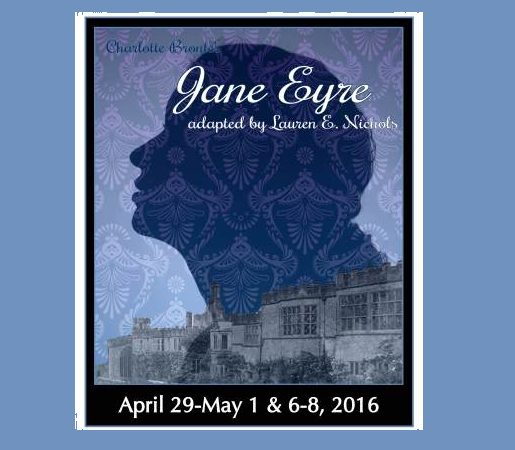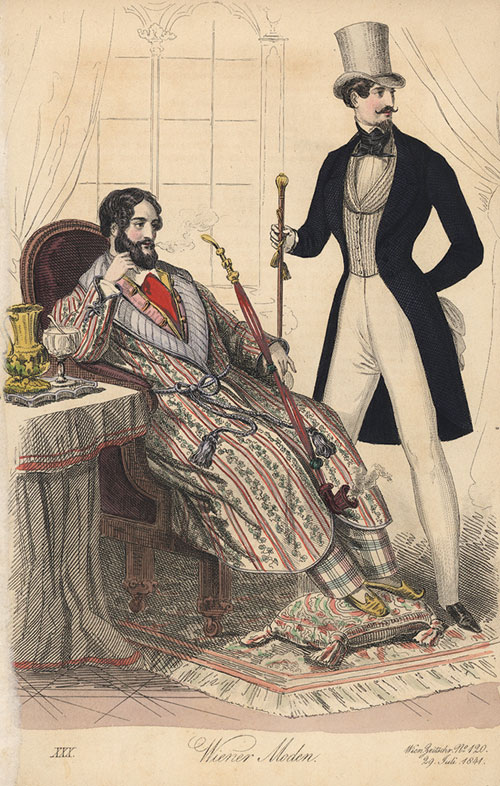JANE EYRE and Men’s Fashions
 Though men’s clothing styles didn’t seem to change as drastically (or as often) as women’s did throughout the 18th and 19th centuries, there were at all times some very distinct differences between less formal and more formal attire. All coats were very form-fitting, giving an hourglass shape to the figure, and often featured oversized, cloth-covered buttons. Frock coats, calf-length, dress-like coats which buttoned to the waist, were primarily worn informally–especially if they were single-breasted and had a notched collar. More formal coats had peaked collars and were double-breasted. Morning coats–or ‘cutaways’–were, as the name suggests, cut away toward the back, giving the coat “tails”.
Though men’s clothing styles didn’t seem to change as drastically (or as often) as women’s did throughout the 18th and 19th centuries, there were at all times some very distinct differences between less formal and more formal attire. All coats were very form-fitting, giving an hourglass shape to the figure, and often featured oversized, cloth-covered buttons. Frock coats, calf-length, dress-like coats which buttoned to the waist, were primarily worn informally–especially if they were single-breasted and had a notched collar. More formal coats had peaked collars and were double-breasted. Morning coats–or ‘cutaways’–were, as the name suggests, cut away toward the back, giving the coat “tails”.
 A gentleman wore a shirt with a high collar, a cravat (soft necktie, which could be tied in a variety of ways), a waistcoat (what we would call a vest–a sleeveless coat), and a coat, along with fly-front trousers (long and tight-fitting). Knee-breeches, worn almost exclusively throughout the 18th century, were seldom seen during the Victorian era except for riding horseback, or in formal court situations.
A gentleman wore a shirt with a high collar, a cravat (soft necktie, which could be tied in a variety of ways), a waistcoat (what we would call a vest–a sleeveless coat), and a coat, along with fly-front trousers (long and tight-fitting). Knee-breeches, worn almost exclusively throughout the 18th century, were seldom seen during the Victorian era except for riding horseback, or in formal court situations.
Gentlemen generally wore heeled-shoes. Farmers wore flat-soled shoes or workboots.
Thanks to Ben Wilder, who plays John Reed, for some of this research.
Source material:
https://en.wikipedia.org/wiki/1840s_in_Western_fashion
https://en.wikipedia.org/wiki/Frock_coat
